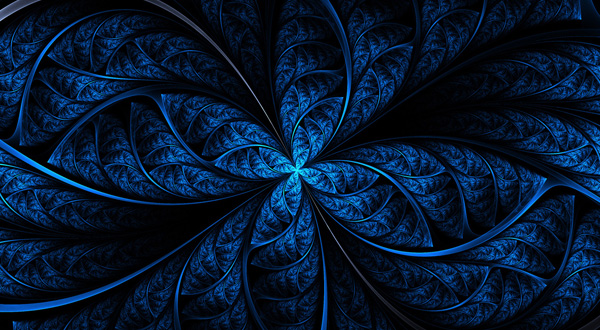Now - 02:43:22
National composition of Ukraine. History Of Ukraine
Ukraine – state, ranked fifth in Europe in terms of population. The number of people living in this country, the results of the 2001 census, 42.8 million. The picture posted below shows the ethnic composition of Ukraine in percent.

A Little history
The ancestors of the Ukrainians were the Trypillians, who inhabited the territory between the rivers Dniester, Dnieper and southern bug 3,5-2 thousand years BC, and the early Slavs who came here in the Carpathian region later. They were busy farming and lead sedentary lives. It is these peoples and formed the basis of the future Ukrainian nation.
A Few centuries were committed by the invasions of the various nomadic tribes to the Slavic lands. But despite borrowing some features of their culture, the Ukrainians have managed to preserve their national identity. It manifests itself not only in language but also in the spiritual culture.
Now the Ukrainians are one of the great Nations of the world, compactly settled in the heart of Europe and partly scattered around the world.

General information
The Populated places are the Northern, Eastern and Central parts. Fewer people live in the Western and southern regions. A large part of the population-Ukrainians (about 78 %), which are one of the most ancient ethnic groups on the planet. In national composition of Ukraine includes the Crimean Tatars, Russians, Belarusians, poles, Jews, Romanians, Moldovans, and others.
The Modern state
The Ukrainian identity documents (except birth certificate), the nationality of the person is not specified. Therefore, people born on the territory of Ukraine automatically become citizens. In addition, they are an integral part of the indigenous people, despite their religion, nationality, language and political views.
Recommended
"Knowledge is light and ignorance is darkness": the value, meaning and alternatives
There are some sayings that would seem to need no explanation, such as “teaching & ndash; light and ignorance – darkness”. But some still do not understand their meaning. But not only for such people is written by our article. I...
What was invented by Mendeleev for the army. The history and fate of the invention
D. I. Mendeleev was a brilliant Russian scientist-polymath, who made many important discoveries in various fields of science and technology. Many people know that he is the author of “Fundamentals of chemistry" and the periodic law of chem...
The origin of the Slavs. The influence of different cultures
Slavs (under this name), according to some researchers, appeared in the story only in 6 century ad. However, the language of nationality bears the archaic features of the Indo-European community. This, in turn, suggests that the origin of the Slavs h...
Ethnic minorities, which include people who are not originally Ukrainian, but consciously following the rules and norms of the current legislation, collectively represent the ethnic composition of Ukraine and are under protection of the state, as well as the native inhabitants.

The Kiev international Institute of sociology conducted a study to determine the ethnic affiliation of citizens by their free identity. Their analysis showed that the ethnic composition of Ukraine is very diverse. According to the data obtained on the territory of the state is home to 62% of a mono-ethnic Ukrainian people, 23 % are bi etnic Russian-Ukrainians, 10% are mono-ethnic Russians and 5% of the people belonging to other groups.
Population of the Central regions
Consider the ethnic composition of Ukraine by regions, starting with Kiev. Its cities, TOWN and villages inhabited by non-titular ethnic groups.
Are mostly inhabited by Ukrainians (about 90%). The remaining 10% are Belarusians and other nationalities. As of 2001, in the capital lived 2607,4 thousands of people. It should be noted that this figure is actually much longer, as work and study here are a lot of foreigners and people visiting from other cities.
The territory of the Zhytomyr region is multinational. Here people of 85 nationalities! More than 80 % of them-Ukrainians. The share of Russian in comparison with other areas of a small – just 8 %. The hallmark of Zhytomyr is the large number of poles living here, especially in the Western part of the region. People with Belarusian roots has quite a bit, despite the fact that is close to the border with Belarus.

The Kirovograd region is inhabited by over 85 % of Ukrainians. And in the North-East by close to 100 %. Residents with Russian roots, there are only 11 % of the total number of citizens. In addition, the region is inhabited by Bulgarians, Moldovans and Belarusians.
Left
We will Continue to explore the ethnic composition of Ukraine according to the areas and move on to the Eastern part of the state. In the Kharkiv region is home to about eighty ethnic groups. Ukrainians make up more than 60% of the total population. They are followed by Russians (30%). The rest of the society present Belarusians, Tatars, Armenians and others.
In the Dnipropetrovsk region is home to the first large Ukrainian community. The indigenous population here is 70 %. The second in number ethnic group – Russian (25 %). They tend to be concentrated in industrial centers. Other nationalities are Jews, and Belarusians.
Donetsk oblast is the leader by quantity of the population. It is home to 4.5 million inhabitants. The bulk of Ukrainians (50 %), Belarusians and Russian (42 %), as well as Jews, Germans, etc. Most populated cities are the largest cities - Donetsk, Mariupol, Kramatorsk and Makiyivka.

On the territory of Luhansk national composition of Ukraine is more diverse than in adjacent areas. Many are people with purely Ukrainian nationality (over 50 %). They are followed by Russians (less than 40%), Belarusians, Tatars and representatives of more than a hundred other ethnic groups. Lugansk region in terms of population density it occupies the fifth place in Ukraine.
Southern regions
In the Zaporozhye region is dominated by the Ukrainian nation (60 %). This region of the country belongs to those few territories where a large number of people with Russian roots (30 %). Among other minorities are the Belarusians and the Bulgarians. The latter, as a rule, live in Primorye.
In the Kherson region in 1989 Ukrainians lived to be 82 %. Later, this figure had increased to 84.6% of. The second place in terms of population held the Russian, but the 2001 census showed that the region was less than 33.8 %. Among other national minorities are allocated to the Crimean Tatars, Belarusians and poles.
In the Nikolaev area the proportion of Ukrainians exceeded 75 %. In the North-Western regions their number reaches 90 %. The Russian inhabitants, there are about 20 %. Numerous remain Moldovans and Belarusians living in the Northern part of the region.
The Odessa region has 55 % of the Ukrainian population and 25% Russian. Amongst the few minorities it is necessary to allocate Bulgarians, Gagauz and Moldovans. Also in the Odessa region there are Czechs, Greeks, Albanians, and poles. The indigenous population is almost all its Central and Northern territories.

Autonomous Republic of Crimea and Sevastopol: on the ethnic composition of these lands falls to 74.4% of Russian and 20.6 % Ukrainians, the remaining 5 % - Crimean Tatars, Armenians, Germans, Jews, Latvians, poles, Koreans, Estonians, etc. Also, people live here with mixed nationalities, Tatars and Gypsies.
The Right
The Volyn region in West Ukraine. The ethnic composition of the population of the territory is practically uniform due to its geographical position. The bulk of the inhabitants are Ukrainians (over 95 %). Also here live the Russians (4 %), poles (0,5 %). the same situation is in Lviv, Ivano-Frankivsk, Rivne, Khmelnytskyi, Vinnytsia, Chernihiv, Poltava, Sumy, Ternopil and Cherkasy oblasts.
Data from the population census in 2001 suggests that the territory of Chernivtsi region is inhabited by representatives of 80 nationalities. Here almost all the population consists of Ukrainians (75 %). They predominate in the North-Eastern and Western parts of the region. I should say that among the indigenous population allocate such sub-ethnic groups, as the Bessarabians, Hutsuls and Rusyns. The first live mostly in the North-Eastern part, the second – in the Western region, and the third – between the rivers Prut and Nistru.
The Second largest nationality in Chernivtsi region – the Romanians (10 %). They are followed by Moldovans (approximately 9 %), and only 7% of the population have Russian roots.
Adds the Transcarpathian region of nationality of Ukraine of different nationalities living in it. This, for example, Hungarians (12,5 %) and Slovaks (0,6 %). Indigenous people – of course, the Ukrainians. And of the total population there are more than 80 %. In addition they live here Russian (4 %), Romanians, Gypsies, Germans, Byelorussians, Italians and representatives of other Nations.
Communities
Ukraine is composed of an impressive number of ethnographic areas. Each of them is characterized by individual culture, traditions and ethnicity. Many of them have some land included in others (for example, placed pokut'a in Galicia). All that separated the modern ethnic composition of Ukraine's regions, which still influences their structure and dynamics. It should be noted that the main national minorities in the state, there are eight
- Russian (8 334,1 thousand);
- Belarusians (275,8 thousand);
Moldovans (258,6 thousand);
- the Crimean Tatars (248,2 thousand);
- Bulgarians (204,6 thousand);
- Hungarians (156,6 thousand);
- Romania (151,0 thousand);
- poles (144,1 million).
The Above mentioned minorities live mostly in the border areas of the country, but in the Central regions is dominated by Ukrainians.
Article in other languages:
AR: https://tostpost.com/ar/education/12499-national-composition-of-ukraine-history-of-ukraine.html
BE: https://tostpost.com/be/adukacyya/21890-nacyyanal-ny-sklad-ukra-ny-g-storyya-ukra-ny.html
HI: https://tostpost.com/hi/education/12298-national-composition-of-ukraine-history-of-ukraine.html
JA: https://tostpost.com/ja/education/12263-national-composition-of-ukraine-history-of-ukraine.html
KK: https://tostpost.com/kk/b-l-m/22083-ltty-ramy-ukraina-aza-stan-tarihy-ukraina.html
PL: https://tostpost.com/pl/edukacja/22804-narodowy-sk-ad-ukrainy-historia-ukrainy.html
TR: https://tostpost.com/tr/e-itim/22007-ulusal-kompozisyon-ukrayna-ukrayna-tarih.html
UK: https://tostpost.com/uk/osv-ta/22317-nac-onal-niy-sklad-ukra-ni-stor-ya-ukra-ni.html
ZH: https://tostpost.com/zh/education/7647-national-composition-of-ukraine-history-of-ukraine.html

Alin Trodden - author of the article, editor
"Hi, I'm Alin Trodden. I write texts, read books, and look for impressions. And I'm not bad at telling you about it. I am always happy to participate in interesting projects."
Related News
the City of Odessa in the first place is famous for its Maritime higher education institutions. However, the agricultural institutions also deserve attention. Additionally, in Odessa there are many universities with economic trend...
The Population Of Croatia. Religion, language, a short description of the country
Croatia is a tourist country on the Adriatic sea. In this article we'll talk about the population of Croatia, its language and features.What is this country?Croatia is situated in the southern part of Central Europe. It is surroun...
We are surrounded by objects of usual sizes; we know what size our body; we are sure that one chair is comfortable for only one person. Macroquantum in the world, in the world of microscopic things, all seem to be less prosaic: ch...
Moscow state linguistic University (MSLU): hostel, faculties, score
Each entrant attracts a certain field of activity. Someone wants to be creative, something more than business, and someone wants to treat people… In General, each person has their own tastes and desires. There are also peop...
The organizational structure of the organization, enterprise
regardless of the ownership form of the enterprise organizational structure is a fundamental element of economic and legal regulation of labor activities of employees. Personnel policy commercial or budget organization sets the fr...
Philosophical issues the works Bunin: an analysis of creativity
Philosophical problems of the works of Bunin, the last Russian classic, as he called him Maxim Gorky, “the first masters of modern literature”, covers a wide range of issues that remain relevant in our difficult dishar...






















Comments (0)
This article has no comment, be the first!